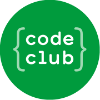In recent years, Large Language Models (LLMs) have dramatically advanced the performance of automated code translation, making their computational accuracy score reach up to over 80% on many previous benchmarks. However, most code samples in these benchmarks are short, standalone, statement/method-level, and algorithmic, which is not aligned with practical coding tasks. Therefore, it is still unknown the actual capability of LLMs in translating code samples written for daily development. To achieve this, we construct a class-level code translation benchmark, ClassEval-T, and make the first attempt to extensively assess recent LLMs' performance on class-level code translation. ClassEval-T is extended from ClassEval, a well-known class-level Python code generation benchmark consisting of multiple practical coding topics, such as database operation and game design, and diverse contextual dependencies (e.g., fields, methods, and libraries). It cost us 360 person-hours to accomplish the manual migration to Java and C++ with complete code samples and associated test suites. Subsequently, we design three translation strategies (i.e., holistic, min-dependency, and standalone) for class-level code translations and evaluate eight recent LLMs of commercial, general, and code kinds in diverse families and sizes on ClassEval-T. Experimental results demonstrate a remarkable performance drop compared with the most widely studied method-level code translation benchmark, and obvious discrepancies among LLMs appear, showing the effectiveness of ClassEval-T in measuring recent LLMs. Afterwards, we further discuss the usage scenarios for diverse translation strategies and LLMs' ability to dependency awareness when translating class samples. Finally, 1,243 failure cases made by the best-performing LLM under test are analyzed and categorized in this paper for practical guidance and future enlightenment.
翻译:暂无翻译




